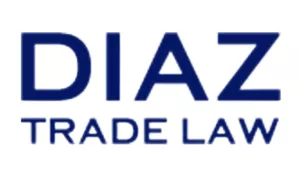The Bureau of the Census published a Notice of Proposed Rulemaking making several clarifications to its Foreign Trade Regulations.
Background – The Census Bureau's Role in Trade Enforcement
The U.S. Census Bureau's mission is to serve as the nation's leading provider of quality data about its people and economy. As part of this mission, the Bureau is responsible for collecting, compiling, and publishing import and export trade statistics for the United States.
To facilitate the collection of these statistics, the Bureau has promulgated Foreign Trade Regulations (FTR) which require certain exporters to file export information with the Bureau. The regulations detail requirements for filing export information, explain filing procedures, and establish penalties for noncompliance. The regulations require export information to be filed on the Automated Export System (AES). The information submitted by exporters to AES is known as Electronic Export Information (EEI).
EEI filings are required for a wide variety of circumstances, including:
- Exports that require an export license under the Export Administration Regulations (EAR)
- Exports containing personal or household goods valued over $2,500 to a foreign destination, other than Canada
- Exports on the EAR's Commerce Control List (CCL) and destined for China, Russia, or Venezuela
- Exports subject to the International Traffic in Arms Regulations (ITAR)
- Exports containing rough diamonds
Proposed Clarifications
In recent years, the Census Bureau has experienced an increase in the number of inquiries regarding export transactions where a customs broker facilitates the entry of goods into the U.S. and the goods are then stored in a facility or admitted into a Foreign Trade Zone (FTZ) before being exported.
Current regulations allow the customs broker to be the U.S. Principal Party in Interest (USPPI) – the party charged with preparing and filing the Electronic Export Information (EEI) in the Automated Export System (AES).
However, in cases where the goods have been stored for an extended period of time after entry, this arrangement may no longer be practical. In these cases, additional parties other than the customs broker has knowledge and control of the goods for months or even years. To account for this, The Census Bureau is proposing the warehouse, storage facility, or FTZ be considered the USPPI.
To achieve this, the notice outlines several amendments to Census regulations including:
- Amending regulations to clarify the requirements governing in-transit shipments from foreign countries through the United States that are subsequently exported to a foreign destination.
- Clarifies who is the U.S. Principal Party in Interest (USPPI) and revises the entry number description when goods are entered into the United States for consumption or warehousing, and then stored in a warehouse or storage facility or admitted into a Foreign Trade Zone (FTZ) before being exported.
- Clarifies that when a customs broker is the USPPI and they are requested to provide information from the customs entry for the filing of the Electronic Export Information (EEI), that they obtain consent from their client
The Census Bureau is seeking public comments from data users, businesses, and members of the public to assess the proposed changes.
If your business is impacted by these changes, you can make your voice heard by filing comments! Written comments must be received on or before December 30, 2024.
The content of this article is intended to provide a general guide to the subject matter. Specialist advice should be sought about your specific circumstances.


